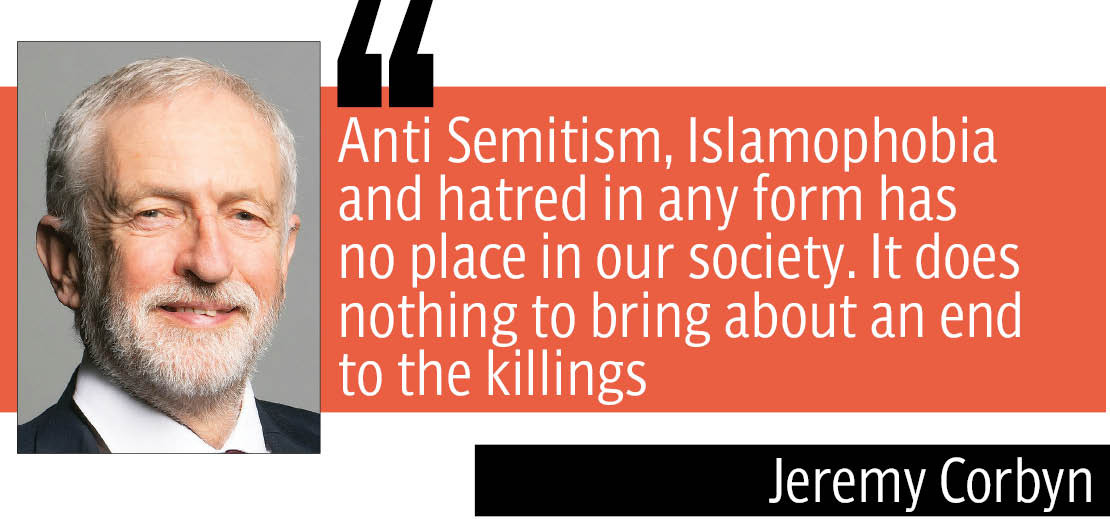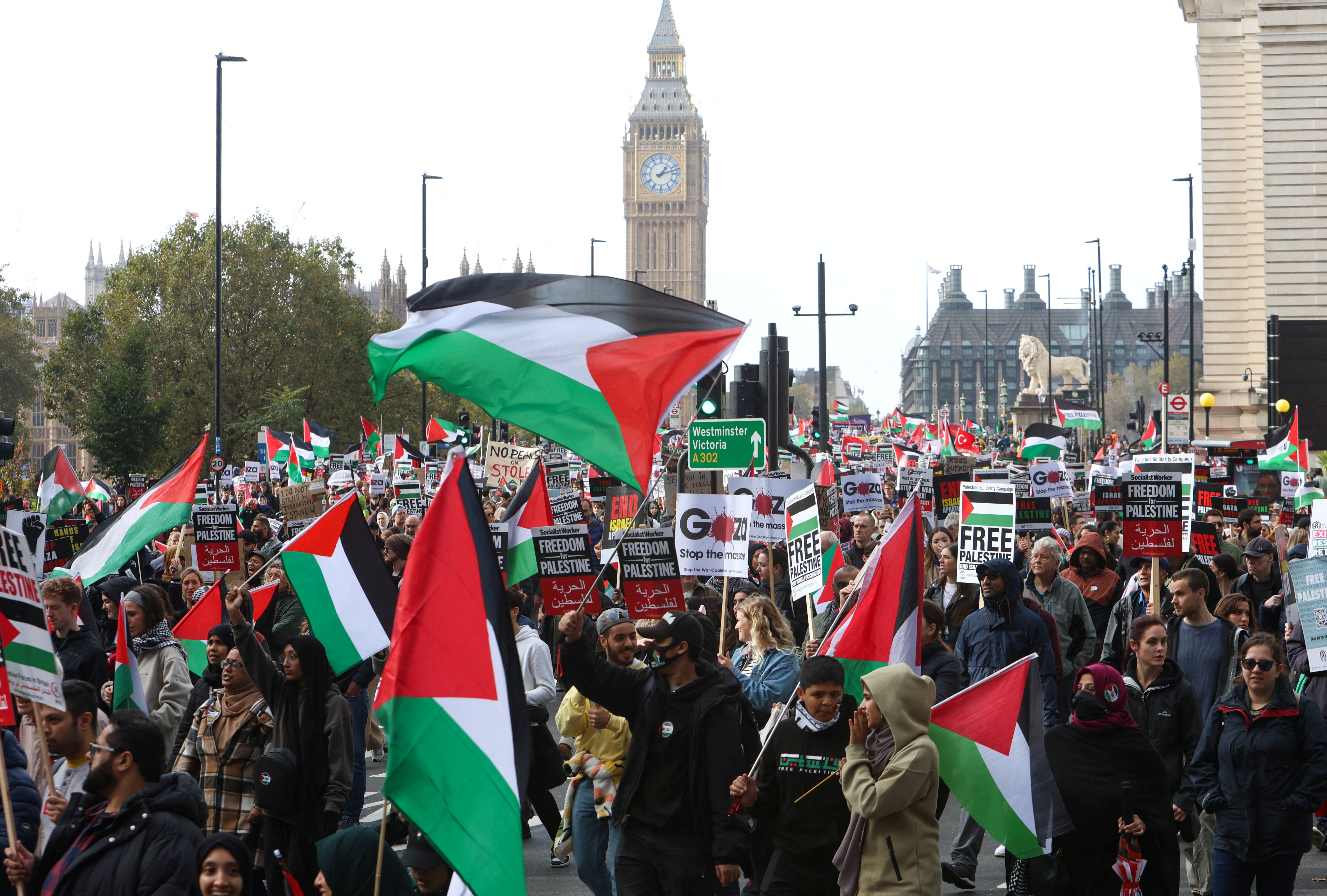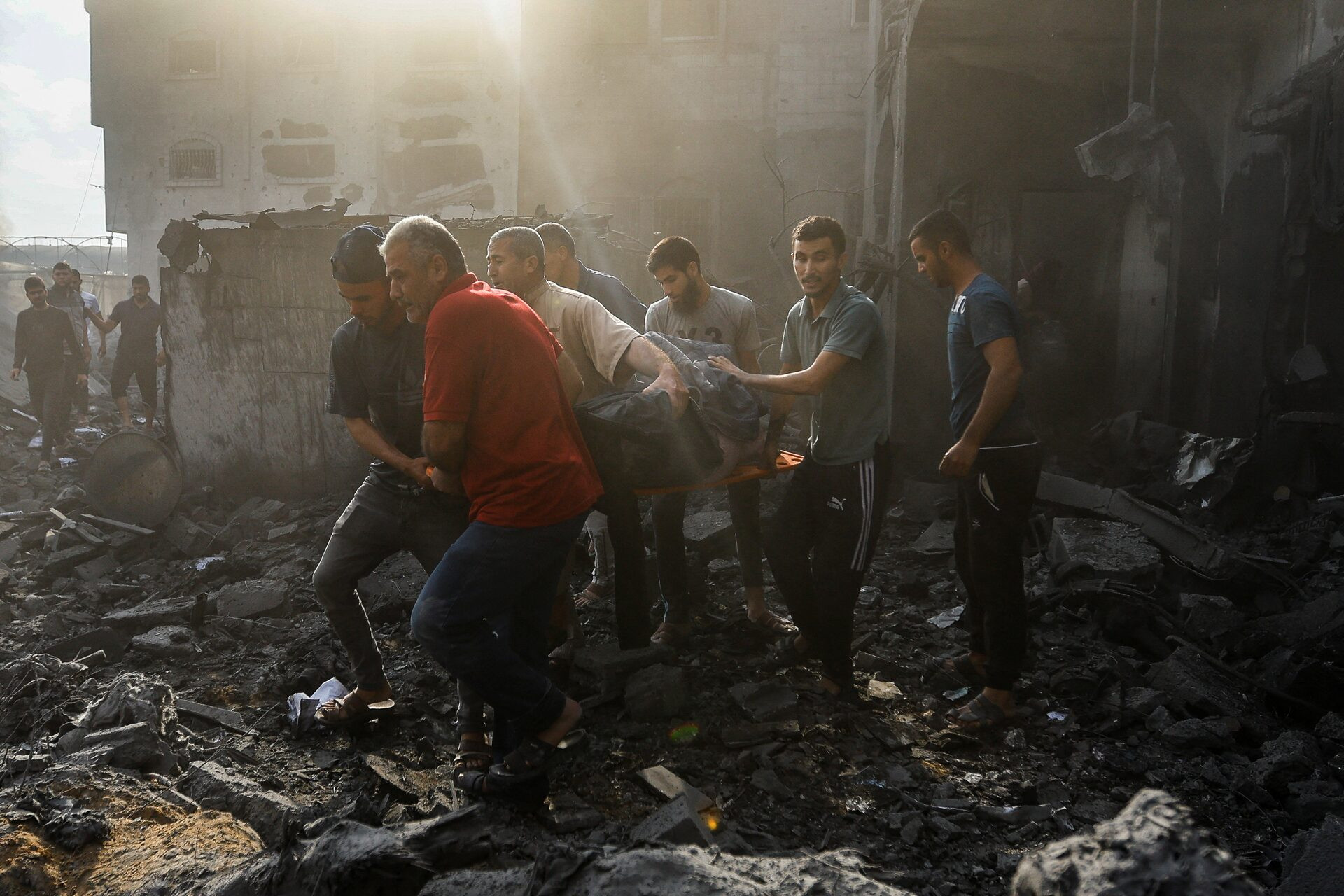In its sixth month, the ongoing Israeli military offensive in Gaza has resulted in a significant loss of life, with over 33,000 Palestinian casualties, a majority of whom are children. The indiscriminate bombing has inflicted widespread devastation on the enclave’s infrastructure, including hospitals, exacerbating the region’s urgent need for humanitarian aid.
Now, experts are sounding the alarm over an impending crisis in northern Gaza, where half the population is confronting severe hunger. According to the latest report from the Integrated Food Security Phase Classification global initiative, 300,000 Palestinian civilians in the war-ravaged enclave teeter on the brink of famine, with as many as 1.1 million people expected to suffer severe famine conditions by July, leading to starvation, destitution, and malnutrition.
Despite mounting evidence of an escalating humanitarian catastrophe, major world powers have displayed tepid commitment to measures that could prevent further loss of life and destruction – that includes the implementation of a ceasefire. Even after a United Nations resolution last month called for an immediate ceasefire during Ramadan, mediators continue efforts to broker the first prolonged truce of the conflict, aiming to expedite aid delivery to the 2.3 million residents of the Palestinian territory.

To compound the tragedy, a devastating airstrike this week resulted in the loss of seven members of World Central Kitchen (WCK). José Andrés, the founder of the relief organisation, has pointed fingers at Israeli forces in Gaza, alleging a deliberate targeting of his aid workers 'car by car.' Israeli authorities, however, have dismissed the incident, referring to it simply as a 'grave mistake,' despite the loss of WCK workers hailing from Australia, Canada, Poland, the UK, the US, and their Palestinian colleague. This latest attack on humanitarian workers has prompted several charities to halt food deliveries to Palestinians teetering on the edge of starvation. Reports from Cyprus reveal that ships carrying approximately 240 tons of aid from the charitable group were denied entry to Gaza just a day after arrival. Furthermore, other humanitarian organisations have ceased operations in Gaza, citing concerns for their staff's safety.
Amidst these complexities, the protracted conflict in Gaza has become a litmus test for leadership, diplomacy, and commitment to peace among some of Israel’s key allies, particularly the US and UK. Despite voicing concerns over mounting civilian casualties, these nations seem hesitant to back their rhetoric with substantial action, underscoring the delicate balance between expressing humanitarian concerns and maintaining strategic alliances amidst the escalating crisis.
Recent reports from US media outlets indicate that the Biden White House has authorised the transfer of a substantial $2.5 billion weapons package to Israel. Similarly, Britain has pledged comparable commitments, with its Conservative Prime Minister staunchly affirming his government's unwavering support for Israel.

Throughout the duration of the Gaza conflict, Britain's Conservative government has also refrained from openly condemning Israel’s actions. However, public support for Palestinians in the UK has been resounding, with large-scale demonstrations demanding an immediate ceasefire. In January of this year, pro-Palestinian protesters gathered outside the British Parliament in London, blocking roads and calling for an immediate ceasefire. Tensions escalated as clashes erupted between protesters and police, who prevented the marchers from crossing Westminster Bridge.
Similarly, last month, tens of thousands of people marched through central London, echoing demands for a ceasefire in Gaza. This marked the first national demonstration organised by the Palestine Solidarity Campaign, an activist organisation in England and Wales, after Prime Minister Sunak claimed extremist groups in the UK were 'trying to tear us apart' in the wake of the Gaza war. The prime minister’s comments were widely interpreted as a veiled criticism of pro-Palestine demonstrations, indicating a delicate tolerance within his government towards such expressions of solidarity.
Following the tragic incident in which seven WCK aid workers, including three British nationals, lost their lives in Gaza, Sunak has faced mounting political pressure to halt the sale of weapons to Israel. However, he has defended his government’s position by asserting that arms exports to Israel are subject to continuous scrutiny, emphasising strict adherence to a rigorous export-licensing regime. “We’ve consistently upheld a meticulous export licensing regime,” he told the Sun newspaper. “There are clear rules, regulations, and procedures that we unfailingly adhere to.”

A poll published by The Guardian reveals that a significant majority of people in Britain support a ban on weapon sales to Israel. Furthermore, the three main opposition parties, alongside some lawmakers within the governing party, have called for the British government to consider suspending arms sales. The main opposition Labour party, predicted by polls to assume power later this year, has also proposed that the government suspend arms sales pending legal findings indicating Israel’s violation of international law. This marks a sharp shift in the party’s stance, which has not been as vocal on this issue in the past. In fact, its leader, Sir Keir Starmer, at one point, faced severe criticism for remarks seemingly supportive of Israel’s actions, including stating that Israel had the ‘right’ to cut off water and energy to Gaza. He later clarified that his statement was intended to assert Israel's right to self-defence.
Overall, in the aftermath of the deadly conflict that erupted in October 2023, Britain’s approach to the Gaza situation has drawn sharp criticism from experts. The early proposal for a humanitarian ceasefire, which was vetoed by the US and UK, only added to the controversy surrounding Britain’s stance. Despite widespread international support for ending the devastating conflict in Gaza, the UK also decided to abstain from voting on a UNSC resolution calling for a ceasefire in February of this year.
The longstanding divisions over Palestine have been apparent within Britain’s political and power circles for decades. Earlier this year, UK Foreign Secretary David Cameron provoked anger from MPs within his own Tory party by suggesting that the country might consider officially recognising a Palestinian state. However, his boss, Prime Minister Sunak swiftly contradicted his own top diplomat, reasserting that the government’s stance on the matter remains unaltered. Such contradictions are no stranger to the political landscape of Britain. Decades ago, amidst the Iraq war, the nation grappled with widespread public and political opposition. Despite this, the Labour government, helmed by Tony Blair, remained unwavering in its support for the US.
To understand Britain's stance on the Gaza conflict, The Express Tribune interviewed Jeremy Corbyn, a Member of Parliament and former leader of the Labour Party, the primary opposition in the country. Known for his vocal criticism of the Conservative government’s handling of the ongoing Gaza situation, Corbyn shared his views on various aspects of the conflict, including the UK government's disregard for the growing public support for Palestinians.

ET: There has been overwhelming support for Palestinians in the streets, yet the UK government displayed unresponsive to calls for a ceasefire. Why has the British government not been paying attention to public opinion?
JC: Hundreds of thousands of us have demonstrated week after week for a ceasefire in Gaza. Our marches are made up of every faith, every language and every background, united in a demand to end human suffering. The government knows it does not have the support of the British people when it refuses to call for a ceasefire. That’s why it is deliberately distorting our demands for peace. We saw the same thing in 2003, when a million of us marched against the Iraq War. We were ignored. We were demonised. Unfortunately, we were proven right. Today, the government of the day is ignoring the popular demand for peace once more, showing contempt for both the Palestinian people and our democracy back home.
ET: What does the British government gain by minimising Palestinian suffering? What prevented the Sunak government from calling out Israel over its actions in Gaza?
JC: The failure to bring about a ceasefire in Gaza represents a catastrophic failure of political leadership, and has exposed a British foreign policy that is inconsistent, unethical, and immoral. That’s why so many of us campaigned – and continue to campaign – for a foreign policy that puts peace-building at its core.
ET: The British government recognises Israel but not Palestine. What are your thoughts on this policy? How can Britain believe in a two-state solution without acknowledging Palestine?
JC: It is laughable for the government to insist it believes in a two-state solution when they consistently refuse to recognise one half of it. The ongoing denial of justice, human rights and freedom to the Palestinian people is an utter disgrace. That’s why, when I was Labour Party leader, I vowed that one of the first things we would have done if elected would be to immediately recognise a Palestinian state. And that recognition should be made by any elected representative who is serious about bringing about peace and stability to the region.
ET: Israeli forces have killed over 33,000 people, most of them children. Can Israel bring back the 1,400 people killed by the bombing of hospitals? What are your thoughts on Israel's justification of its actions?
JC: The attack on October 7th was horrific and wrong. That cannot justify the collective punishment of the Palestinian people. Over the past few months, human beings have been forced to endure a level of horror that should haunt us forever. Grieving mothers, obliterated neighbourhoods, doctors performing amputations without anaesthesia, and thousands of orphaned children, the world has witnessed it all. That’s why I have consistently called for a ceasefire, and it is unconscionable that so many of my parliamentary colleagues refused to do the same. A ceasefire is the most basic demand for an end to the killings — and it is a demand that should have been made by any representative that believes all human life is of equal worth.

ET: The narrative in the West often frames the conflict as a war between Israel and Hamas. Can this conflict be understood without considering the context of occupation? What are your thoughts on this?
JC: The UN Secretary General was right when he said that this didn’t come out of nowhere, and without serious political intervention, this endless cycle of violence will just go on and on and on. We have to understand that Palestinians are living under occupation and a system of apartheid. I have visited Palestine on several occasions and am always unsettled by the sheer number of checkpoints you have to go through just to travel a short distance. These are the everyday lives of Palestinian people. Peace is not possible without understanding the root cause of its absence - and we will never bring about peace until we bring about an end to the occupation of Palestine.
ET: How can the Labour Party lead by example in championing diversity, equality, and tolerance if its leader remains silent on growing cases of Islamophobia at home and mass murder of Palestinians in Gaza? Has the party lost its moral compass?
JC: The Labour movement is built on solidarity, but solidarity means nothing if it cannot be extended to people in need abroad. Our demonstrations for peace are about international solidarity. We are an anti-racist movement, standing on the shoulders of the anti-apartheid campaign at the end of the last century. And what does anti-racism mean? It means treating all human life with equal value. It means challenging the Conservative government’s demonisation of refugees. It means rejecting any hierarchy of discrimination and vowing to eliminate Islamophobia, antisemitism, anti-Black racism and all forms of hatred. Anti-racism means building a world in which everyone can live a life of freedom, dignity and peace.
ET: The Palestine-Israel conflict has exposed intense political Islamophobia in British politics. What potential harm can this Islamophobia do alongside the rise in racism?
JC: When anti-Muslim graffiti is sprayed on bus stops, and Jewish schools in North London are daubed in red paint, this is racist intimidation that can inspire other forms of violent hatred. Remember a few months ago, a Palestinian was murdered in Chicago by a man who reportedly shouted “You Muslims must die''. This is the consequence of when we allow hatred to spread unchallenged. Anti Semitism, Islamophobia and hatred in any form has no place in our society. It does nothing to bring about an end to the killings. And it does nothing to bring about a more peaceful world. Just as we stand up for peace, we stand up against hatred in all its forms. I want to take this opportunity to thank faith leaders in my own constituency, Islington North, for responding to horror the only way they know how: with love, kindness and solidarity. They teach us the meaning of community: to be there for each other in times of grief, anger and helplessness. Jews, Muslims, Christians, and those without faith all feel the pain of a conflict happening thousands of miles away. We live side-by-side as neighbours – and so often it is the quiet and unremarkable acts of neighbourliness that sustain us all.
